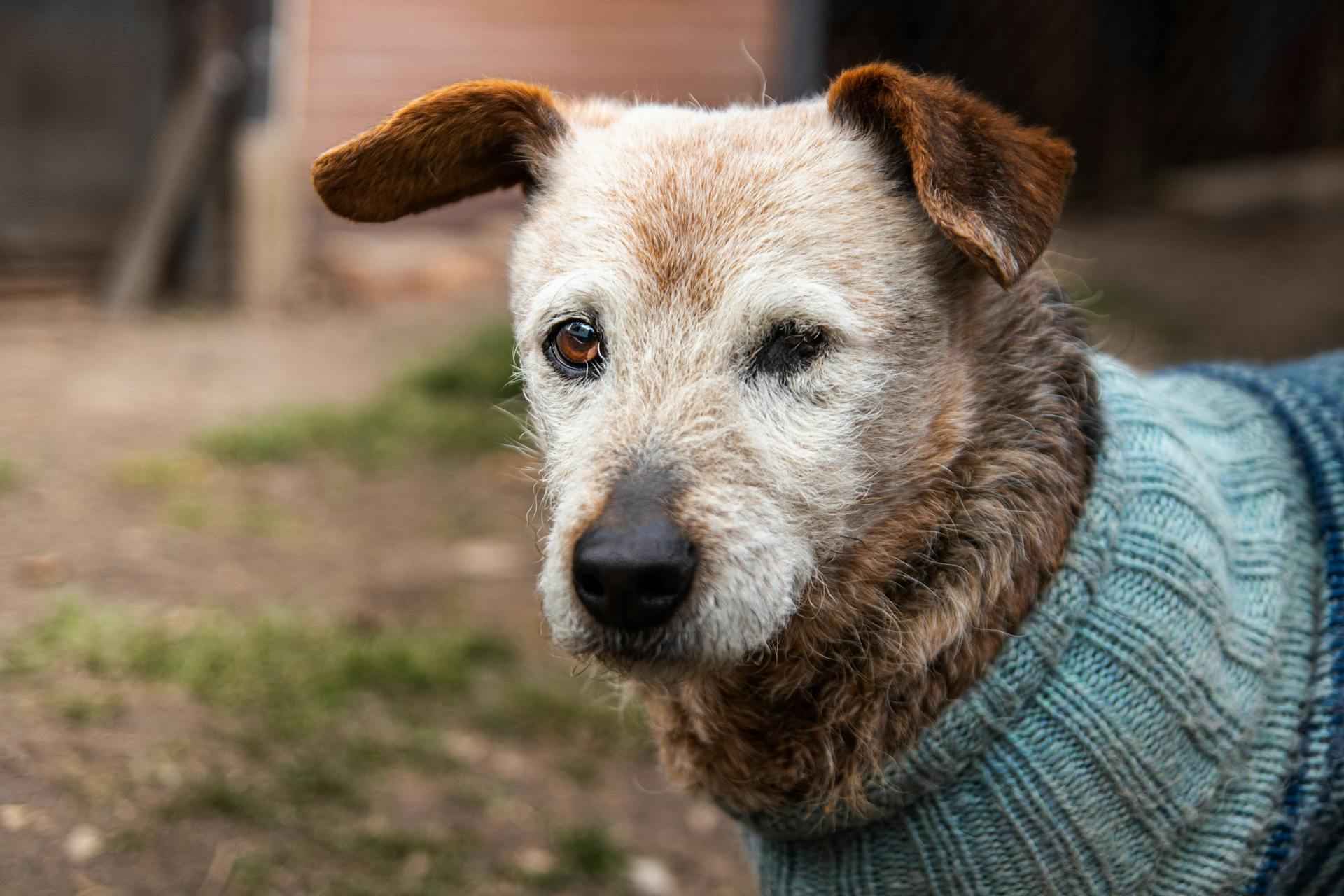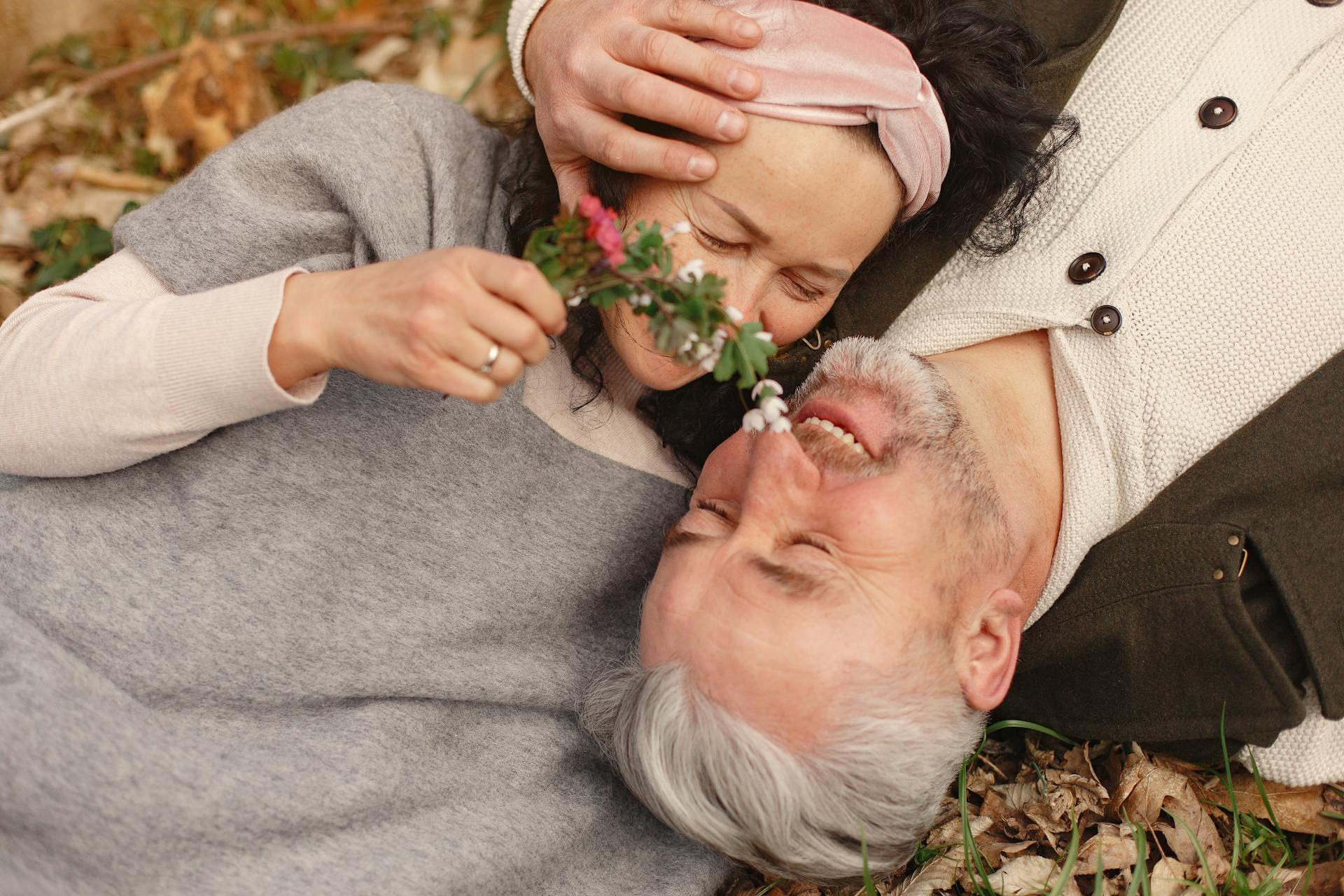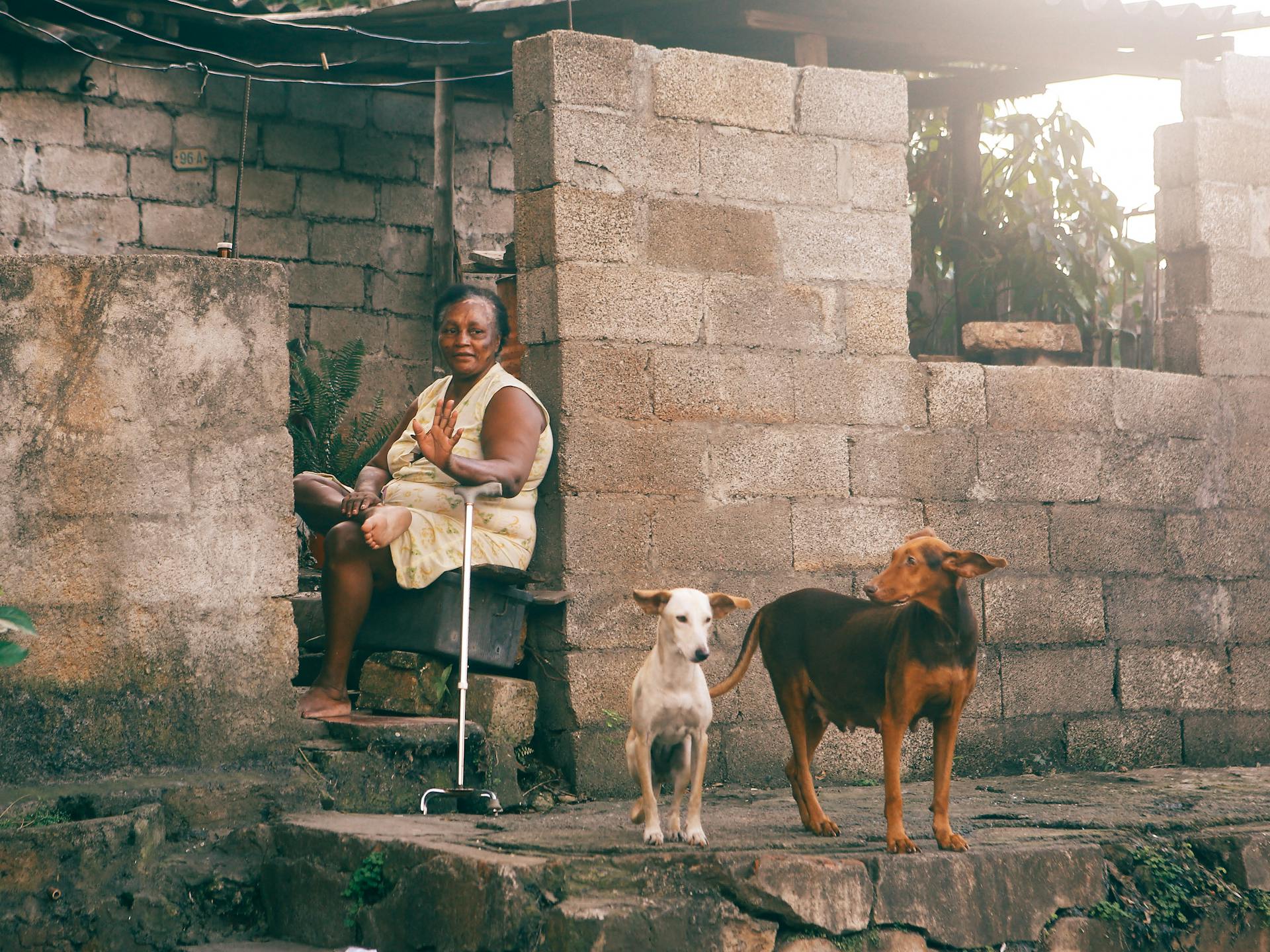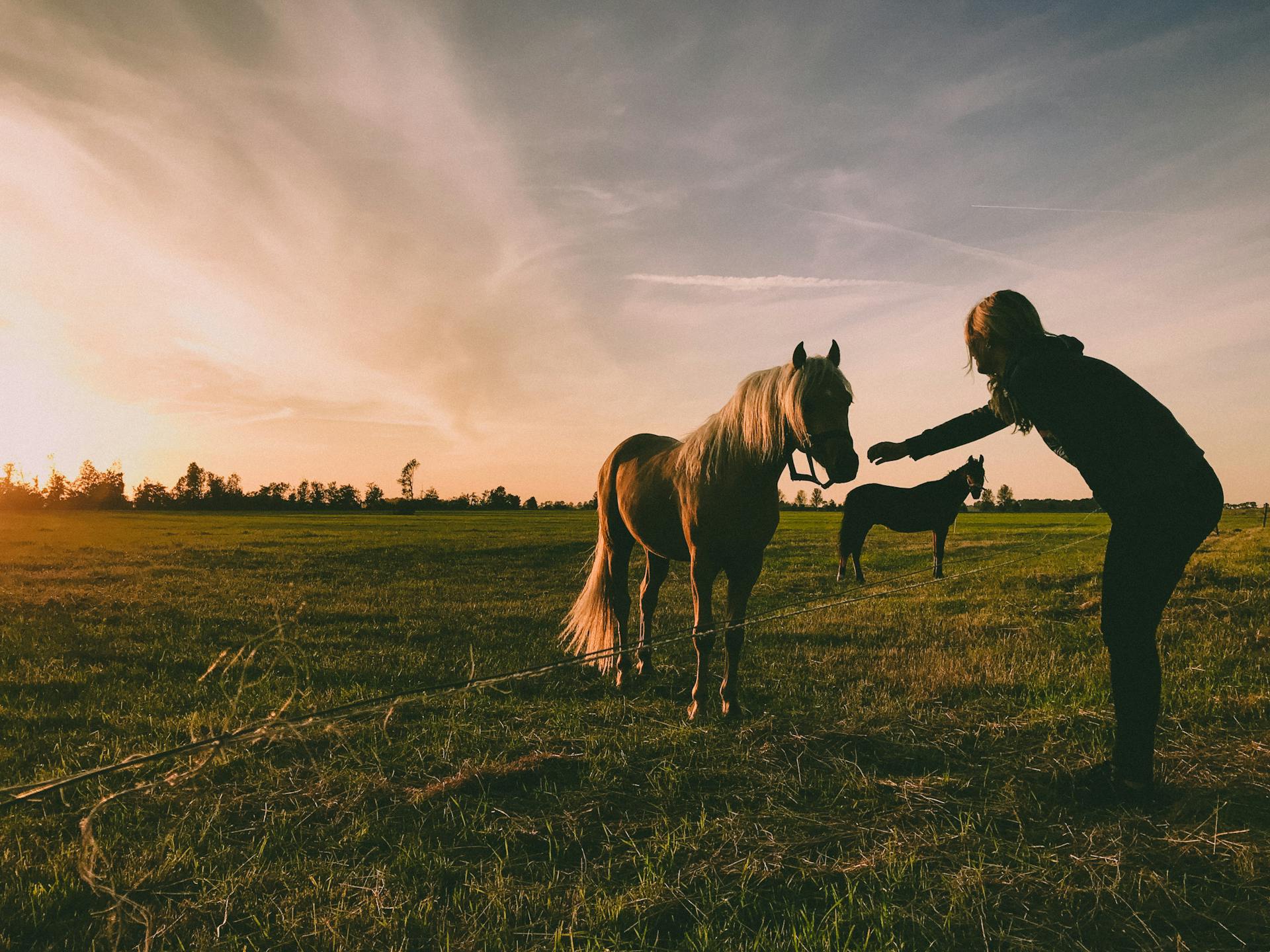
Deciding the best age to breed a mare can be a crucial decision for any horse owner. Typically, mares are bred between 4 and 16 years old.
A mare's reproductive cycle is closely tied to her age. Mares are usually bred between 4 and 16 years old, with the ideal age being between 5 and 12 years old.
The ideal breeding age for a mare is around 5 to 12 years old, when she reaches her physical peak and has had time to mature.
Optimum Breeding Ages
Most breeders will start breeding a mare as young as five, during her optimum fertility years.
A mare usually starts having foals at five and reaches peak fertility at 6 or 7. This is why it's best to start a broodmare young, when it's easiest for her to be pregnant.
Breeding a mare for the first time after 15 or 16 is risky and can be difficult.
A mare who's had no foals, or only one or two, shouldn't be bred past 16.
Mares who have been regularly bred, and are able to manage pregnancies well, can be bred as old as 25, though most breeders will stop at 23.
A healthy mare will start cycling, can be bred and even become pregnant in her yearling spring, often before her first full year of life.
Pregnancy and Foaling
A mare's pregnancy typically lasts around 11 to 12 months, spanning 330 to 370 days.
Just because every mare can be bred doesn't mean she should, considering factors like age and individual health.
Mares can become pregnant at a relatively young age, but it's essential to consider their overall development and readiness for foaling.
A mare is pregnant for 330 to 370 days—or about 11 to 12 months.
This period is crucial for the mare's health and the developing foal, requiring proper care and attention throughout.
Breeding Considerations
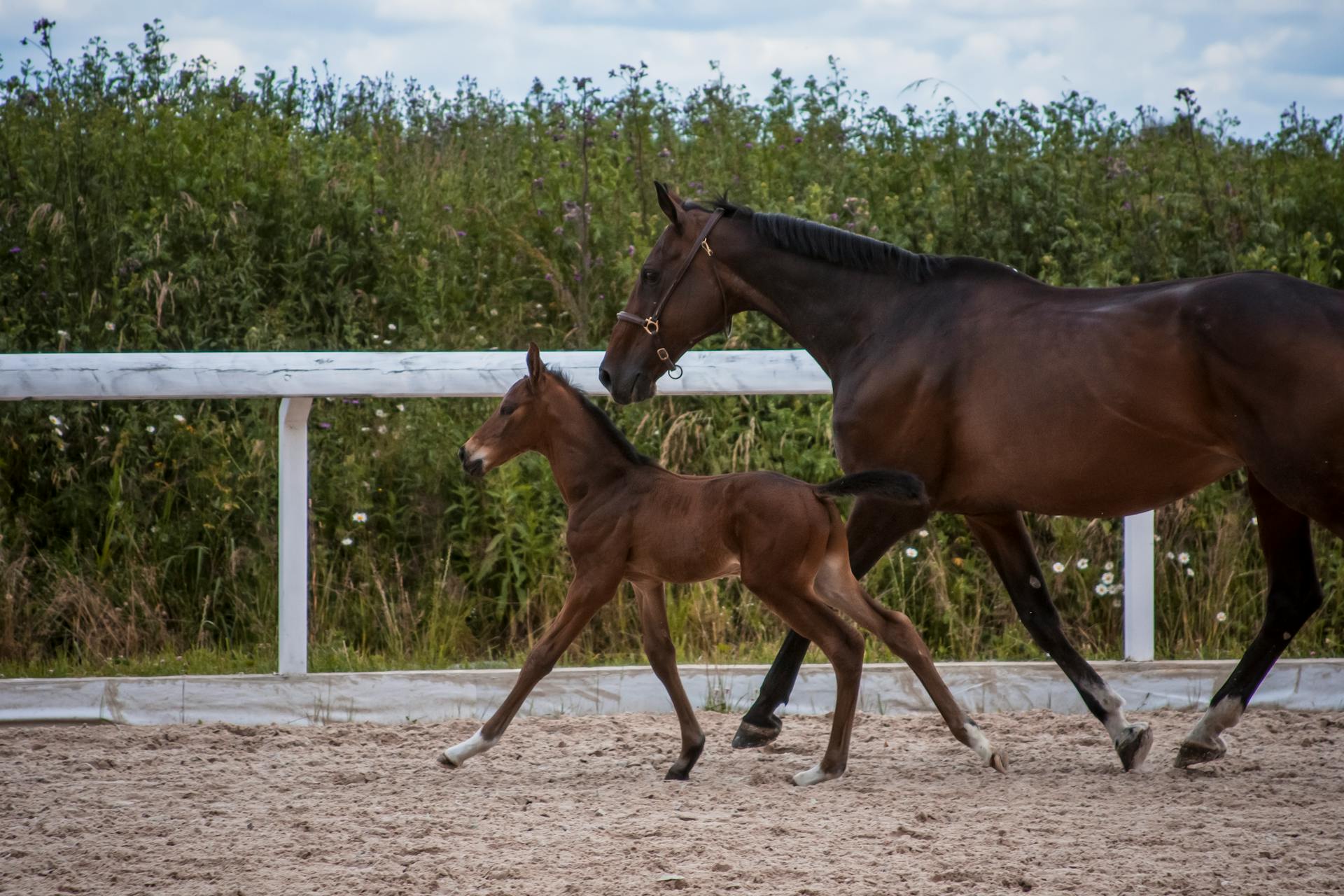
Breeding a mare is a significant investment, and it's essential to consider the costs involved. Subsequent vet bills can add up quickly, totaling 15 to 18 months of expenses.
A mare's age is a crucial factor to consider when deciding when to breed her. The age at which a mare can breed and should be bred are two different things.
Breeding fillies too early can lead to smaller foals and less milk production from the mare. It may also result in underdevelopment of the mare herself.
Mares can carry foals into their 20's with no problem, but the eggs of mares over 18 years old have a high incidence of inherent defects that result in a high rate of early pregnancy loss.
Under natural herd conditions, mares typically start cycling and become pregnant in their yearling spring, often before their first birthday.
Breeding Age Limits
Breeding a mare too late in life can be risky and difficult. Most breeders and vets agree that breeding a mare for the first time after 15 or 16 is risky and can be difficult.
For a maiden mare, best practice is not to breed beyond 16 years old. A mare who's had no foals, or only one or two, shouldn't be bred past 16. Most breeders will start breeding a mare as young as five, and any mare who will be a broodmare should have her first foal between 5 and 10, during her optimum fertility years.
Mares who have been regularly bred, and are able to manage pregnancies well, can be bred as old as 25, though most breeders will stop at 23.
Is 14 Too Old for Breeding?
14 is the oldest a maiden mare should be bred. For a mare who’s been having foals for almost ten years, 14 is a perfectly safe age.
Breeding a mare at 14 is generally considered safe, but it's essential to remember that every horse is different. A mare who's been having foals for almost ten years can still safely breed at 14.
In fact, 14 is the oldest a mare should be bred to have a healthy pregnancy and foaling experience.
You might enjoy: Oldest Horse Breed
Breeding Mare Age Limit
Breeding a mare too old can be a recipe for disaster. A mare who's 15 or 16 years old is considered too old to breed for the first time, and it can be difficult.
Most breeders and vets agree on this age limit, so it's essential to consider this when planning your breeding program. You want to ensure your mare is healthy and ready for the challenges of pregnancy and foaling.
A mare who's never had a foal should be bred no later than 14 years old. This is the oldest age for a maiden mare to be bred, so plan accordingly.
Some mares can continue to have foals into their early 20s, but this depends on their individual health and breeding history. A mare who's had no foals, or only one or two, shouldn't be bred past 16 years old.
In contrast, a mare who's been regularly bred and can manage pregnancies well can be bred as old as 25, though most breeders will stop at 23.
Mare Care and Retirement
As your mare reaches the end of her breeding career, it's essential to consider her future care and retirement.
A mare's average lifespan is 25-30 years, and with proper care, many can live well into their 30s.
In the final years of her breeding career, a mare's reproductive cycle slows down, and she may experience a decrease in fertility.
To ensure a smooth transition, it's recommended to gradually reduce her breeding schedule, allowing her to rest and recover between foaling.
When to Retire a Mare
As a horse owner, you'll eventually need to decide when it's time to retire your mare. For a maiden mare, best practice is not to breed beyond 16 years old.
Breeding a mare can be a challenging process, and as she ages, so do her reproductive abilities. For an experienced broodmare who's had many healthy foals, breeding over 20 gets tricky.
Most experienced mares can safely have foals until they are 23 or 25, but it's essential to consider her overall health and well-being.
When to Spay Mares
A mare's reproductive life can be a long one, but there's a point when it's best to stop breeding her. A mare who's had no foals, or only one or two, shouldn't be bred past 16.
Mares who have been regularly bred can continue to have foals into their mid-twenties. Most breeders will stop breeding a mare at 23.
As a mare ages, her body undergoes changes that can affect her ability to carry a pregnancy safely. Mares who have been bred regularly can usually manage pregnancies well, but it's essential to consider their individual health and well-being when deciding when to stop breeding.
Mares who have been bred regularly can continue to have foals into their mid-twenties, but it's crucial to monitor their health closely and stop breeding at 23 or 25, depending on their individual needs.
Preparing a Mare for Breeding
Breeding is an expensive venture, starting with the cost of the stallion and subsequent vet bills that can add up quickly, anticipating 15 to 18 months of breeding-related veterinary bills.
Consider a mare's age, health, confirmation, performance history, and what traits she possesses that you'd want to pass on before deciding to breed her.
The vague terms "hard keeper" or "fatter than a county fair hog" are no longer relevant when considering a mare's breeding readiness, so it's essential to look beyond these outdated descriptions.
You'll need to assess a mare's overall health and fitness level before breeding, taking into account any potential health issues that could impact her reproductive success.
Frequently Asked Questions
Is a 14 year old mare too old to breed?
A 14-year-old mare is still considered relatively young and fertile, but her reproductive prime is nearing its end, and fertility may start to decline soon. It's essential to consult with a veterinarian to determine the mare's individual health and fertility status before breeding.
What is too early for a mare to foal?
A foal born before 300 days' gestation is considered premature and at high risk of survival issues. Mares foaling too early often require intensive care to help their newborns thrive.
What are the risks of breeding an older mare?
Breeding an older mare can be challenging due to reproductive issues like cervical adhesions and uterine infections. Understanding these risks is crucial for a successful breeding experience
Sources
- https://horserookie.com/how-old-breeding-mares/
- https://www.ttrausnz.com.au/edition/2018-08-24/the-ageold-question-why-a-mares-age-matters
- https://equisearch.com/articles/appropriate-breeding-age/
- https://proearthanimalhealth.com/the-mare-pre-breeding-considerations/
- https://thehorse.com/120630/appropriate-breeding-age/
Featured Images: pexels.com
